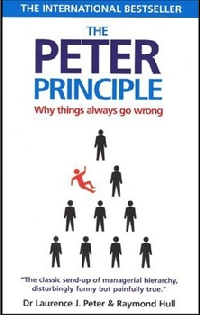- How can we be so different?
 There is no doubt there are significant differences between the ideologies of the Liberal Left and Conservative Right. We are a nation divided by two distinctly separate interpretations of who we are and the direction our country should be moving towards. I have narrowed it down to twelve distinct attributes discerning our differences. Some will accuse me of oversimplification, but I think they will readily understand what I'm trying to say.
There is no doubt there are significant differences between the ideologies of the Liberal Left and Conservative Right. We are a nation divided by two distinctly separate interpretations of who we are and the direction our country should be moving towards. I have narrowed it down to twelve distinct attributes discerning our differences. Some will accuse me of oversimplification, but I think they will readily understand what I'm trying to say.
ECONOMIC POLICY
LEFT: Socialists - believes the rights of the community supersedes those of the individual. No success or failure. Wants to redistribute the wealth.
RIGHT: Capitalists - believes in individual initiative, risk and the freedom to try. The individual should keep what he makes.
LEFT: Socialists - believes the rights of the community supersedes those of the individual. No success or failure. Wants to redistribute the wealth.
RIGHT: Capitalists - believes in individual initiative, risk and the freedom to try. The individual should keep what he makes.
RELIGIOUS BELIEFS
LEFT: God jeering - many agnostics and atheists determined to remove God from our lives.
RIGHT: God fearing - most believe in a supreme being and govern their lives by religious morals.
LEFT: God jeering - many agnostics and atheists determined to remove God from our lives.
RIGHT: God fearing - most believe in a supreme being and govern their lives by religious morals.
WORK ETHIC
LEFT: Entitlements - assumes no responsibility; believes they have a right to something even if they didn't earn it.
RIGHT: Responsibility - assumes both credit and blame for personal actions.
LEFT: Entitlements - assumes no responsibility; believes they have a right to something even if they didn't earn it.
RIGHT: Responsibility - assumes both credit and blame for personal actions.
MORALITY
LEFT: Breaking the law to suit their agenda is considered acceptable.
RIGHT: Respect for the rule of law.
LEFT: Breaking the law to suit their agenda is considered acceptable.
RIGHT: Respect for the rule of law.
GOVERNMENT
LEFT: Believes the Constitution no longer serves the needs of society and should be replaced.
RIGHT: Believes in the U.S. Constitution.
LEFT: Believes the Constitution no longer serves the needs of society and should be replaced.
RIGHT: Believes in the U.S. Constitution.
IMMIGRATION
LEFT: Welcomes illegal immigrants.
RIGHT: Welcomes legal immigrants.
LEFT: Welcomes illegal immigrants.
RIGHT: Welcomes legal immigrants.
GUNS
LEFT: Believes guns are dangerous and should be banned.
RIGHT: Advocates the 2nd Amendment of the U.S. Constitution.
LEFT: Believes guns are dangerous and should be banned.
RIGHT: Advocates the 2nd Amendment of the U.S. Constitution.
FEDERAL DEBT
LEFT: Credit card mentality; wants to keep raising the debt ceiling as opposed to addressing the problem.
RIGHT: Believes we owe it to future generations not to burden them with an insurmountable debt.
LEFT: Credit card mentality; wants to keep raising the debt ceiling as opposed to addressing the problem.
RIGHT: Believes we owe it to future generations not to burden them with an insurmountable debt.
FEDERAL BUDGET
LEFT: Balancing the budget is immaterial. Keeps raising spending and lowering income.
RIGHT: Wants to balance the budget and live within our means.
LEFT: Balancing the budget is immaterial. Keeps raising spending and lowering income.
RIGHT: Wants to balance the budget and live within our means.
WORK ETHIC
LEFT: The public should be treated like cattle. Government will do the thinking for them.
RIGHT: Respects the dignity of the individual human spirit and the importance of each person to lead a worthy and productive life.
LEFT: The public should be treated like cattle. Government will do the thinking for them.
RIGHT: Respects the dignity of the individual human spirit and the importance of each person to lead a worthy and productive life.
SIZE OF GOVERNMENT
LEFT: Believes a larger government is needed to regulate everything.
RIGHT: Believes in smaller government, thereby less bureaucratic interference with business.
LEFT: Believes a larger government is needed to regulate everything.
RIGHT: Believes in smaller government, thereby less bureaucratic interference with business.
PATRIOTISM
LEFT: Wants to make us ashamed of our past by rewriting the history books, and eliminating our sense of exceptionalism.
RIGHT: Loves country; believes in exceptionalism.
LEFT: Wants to make us ashamed of our past by rewriting the history books, and eliminating our sense of exceptionalism.
RIGHT: Loves country; believes in exceptionalism.
It is like we live in separate countries with little compatibility between the two. Whoever wins the presidential election in November, the other side is certainly not going to like it.
Related articles:
"A New Mason-Dixon Line" (Dec 13, 2011)
"What if the South had Won the War?" (Dec 20, 2011)
Also published with News Talk Florida.
Note: All trademarks both marked and unmarked belong to their respective companies.
 Tim Bryce is a writer and the Managing Director of M&JB Investment Company (M&JB) of Palm Harbor, Florida and has over 30 years of experience in the management consulting field. He can be reached at timb001@phmainstreet.com
Tim Bryce is a writer and the Managing Director of M&JB Investment Company (M&JB) of Palm Harbor, Florida and has over 30 years of experience in the management consulting field. He can be reached at timb001@phmainstreet.com
For Tim's columns, see: timbryce.com
Like the article? TELL A FRIEND.
Copyright © 2016 by Tim Bryce. All rights reserved.
NEXT UP: HAVING A BAD DAY - Thank heaven it doesn't occur often.
LAST TIME: THE WORD "GOBBLEDYGOOK" - Cheap words and expressions that bother me.
Listen to Tim on WJTN-AM (News Talk 1240) "The Town Square" with host John Siggins (Mon, Wed, Fri, 12:30-3:00pm Eastern); WZIG-FM (104.1) in Palm Harbor,FL; KIT-AM (1280) in Yakima, Washington "The Morning News" with hosts Dave Ettl & Lance Tormey (weekdays. 6:00-9:00am Pacific); and WWBA-AM (News Talk Florida 820). Or tune-in to Tim's channel on YouTube.
 I always liked the word "gobbledygook" ever since I first heard it in my High School English class. If memory serves me correctly, the term resulted from World War II to combat bureaucratic processes that impeded progress in the war plants. Basically, it refers to unclear or wordy jargon that is more inclined to confuse than to clarify something. It seems to me there is an abundance of gobbledygook in our daily vernacular. Let me give you a few examples of such expressions that particularly tests my patience.
I always liked the word "gobbledygook" ever since I first heard it in my High School English class. If memory serves me correctly, the term resulted from World War II to combat bureaucratic processes that impeded progress in the war plants. Basically, it refers to unclear or wordy jargon that is more inclined to confuse than to clarify something. It seems to me there is an abundance of gobbledygook in our daily vernacular. Let me give you a few examples of such expressions that particularly tests my patience. My mom has two miniature dachshunds whom she is very attached to. Like a lot of dog owners, she pampers them and frankly, I think they lead a very comfortable existence. It's a good gig. All they have to do is return her love and try not to soil the carpet too often. Other than that, she dotes on them as if they were her own children. They have comfortable beds to sleep in, plenty of toys and chew sticks to occupy their time, they can play in a fenced-in yard, and have homemade dinners prepared for their finicky tastes. I would probably sign up for such a program myself, but I fear my testicles would be sacrificed like the dogs did.
My mom has two miniature dachshunds whom she is very attached to. Like a lot of dog owners, she pampers them and frankly, I think they lead a very comfortable existence. It's a good gig. All they have to do is return her love and try not to soil the carpet too often. Other than that, she dotes on them as if they were her own children. They have comfortable beds to sleep in, plenty of toys and chew sticks to occupy their time, they can play in a fenced-in yard, and have homemade dinners prepared for their finicky tastes. I would probably sign up for such a program myself, but I fear my testicles would be sacrificed like the dogs did. There have been some recent videos on television and the
There have been some recent videos on television and the  My father has been gone for eleven years now. We worked together for nearly thirty years and in that time, he taught me the ins and outs of the information systems industry and the corporate world. What I particularly miss about him is the arguments we would get into. I don't mean vicious discourse but rather serious debates on a variety of topics. He had a good logical mind and we would often spar if for no other reason than to clarify an idea or concept. My dad was old school though who was of Scottish stock and came up the hard way. If you screwed up, he would let you know about it loud and clear. There was no sugarcoating a mistake with him. Over time I came to learn the reason he jumped down your throat was that he didn't want you to commit the same mistake twice, and to his credit, you wouldn't.
My father has been gone for eleven years now. We worked together for nearly thirty years and in that time, he taught me the ins and outs of the information systems industry and the corporate world. What I particularly miss about him is the arguments we would get into. I don't mean vicious discourse but rather serious debates on a variety of topics. He had a good logical mind and we would often spar if for no other reason than to clarify an idea or concept. My dad was old school though who was of Scottish stock and came up the hard way. If you screwed up, he would let you know about it loud and clear. There was no sugarcoating a mistake with him. Over time I came to learn the reason he jumped down your throat was that he didn't want you to commit the same mistake twice, and to his credit, you wouldn't. A person's trustworthiness can be measured by the number of metal keys he possesses. Each key represents a trust or responsibility the person has committed to maintaining. I tend to believe the more keys a person has, the more he is trusted; the fewer keys he possesses, less so. I have three sets of keys I maintain; one set for my office and home, one for the Masonic Lodge where I serve as Secretary, and a set of car keys; in all, I generally carry 40+ keys which is a lot and quite uncomfortable if I try to carry them in a single pocket.
A person's trustworthiness can be measured by the number of metal keys he possesses. Each key represents a trust or responsibility the person has committed to maintaining. I tend to believe the more keys a person has, the more he is trusted; the fewer keys he possesses, less so. I have three sets of keys I maintain; one set for my office and home, one for the Masonic Lodge where I serve as Secretary, and a set of car keys; in all, I generally carry 40+ keys which is a lot and quite uncomfortable if I try to carry them in a single pocket. This year I celebrate 40 continuous years in business, not counting menial jobs I took in high school and college. Whenever I mention this, people start to look at me as some type of dinosaur, but it seems like it was only yesterday when I entered the work force. As a management consultant, I have had the good fortune to see a lot during this period; I've traveled considerably and worked with just about every type of business imaginable, and, because my profession is closely tied to the computer industry, I have had a front row seat in watching the evolution of computing.
This year I celebrate 40 continuous years in business, not counting menial jobs I took in high school and college. Whenever I mention this, people start to look at me as some type of dinosaur, but it seems like it was only yesterday when I entered the work force. As a management consultant, I have had the good fortune to see a lot during this period; I've traveled considerably and worked with just about every type of business imaginable, and, because my profession is closely tied to the computer industry, I have had a front row seat in watching the evolution of computing. When new people join companies and nonprofit groups there is a natural tendency for them to try and change the culture to suit their work habits, attitudes, and customs. Such changes are sometimes welcomed by the culture, but more often than not, it is steadfastly resisted and the person is rebuffed. Those people who believe the culture should adapt to them, as opposed to the other way around, are in for a rude awakening.
When new people join companies and nonprofit groups there is a natural tendency for them to try and change the culture to suit their work habits, attitudes, and customs. Such changes are sometimes welcomed by the culture, but more often than not, it is steadfastly resisted and the person is rebuffed. Those people who believe the culture should adapt to them, as opposed to the other way around, are in for a rude awakening. The Peter Principle was introduced back in 1969 by Dr. Laurence J. Peter in his book of the same name. In a nutshell, the principle contends that in a hierarchical organization a person will rise to the level of their competency, and trouble arises if the person rises above it. Along with Parkinson's Law, it is one of the most well known principles in the world of management. Unfortunately, young people are unfamiliar with the concept which is perhaps why we are seeing more people lately rising above their level of competency.
The Peter Principle was introduced back in 1969 by Dr. Laurence J. Peter in his book of the same name. In a nutshell, the principle contends that in a hierarchical organization a person will rise to the level of their competency, and trouble arises if the person rises above it. Along with Parkinson's Law, it is one of the most well known principles in the world of management. Unfortunately, young people are unfamiliar with the concept which is perhaps why we are seeing more people lately rising above their level of competency. Back in 1970, actor George C. Scott portrayed General George S. Patton of World War II fame. The
Back in 1970, actor George C. Scott portrayed General George S. Patton of World War II fame. The  A couple of years ago I wrote about a study claiming 25% of two-year-olds possessed a smart phone. I received several comments afterwards from readers aghast at the statistic. I do not know what the stats are today for two-year-olds, but another study has surfaced describing our technology addiction. Last October, the Pew Research Center reported on
A couple of years ago I wrote about a study claiming 25% of two-year-olds possessed a smart phone. I received several comments afterwards from readers aghast at the statistic. I do not know what the stats are today for two-year-olds, but another study has surfaced describing our technology addiction. Last October, the Pew Research Center reported on  When they have commercials on television for food, you often hear about its nutritional value. In a way, it is like when you were a youngster and your mother admonished you to eat your lima beans because it was "good for you." I realize our taste buds change over the years, but I never acquired a hankering for lima beans, even to this day.
When they have commercials on television for food, you often hear about its nutritional value. In a way, it is like when you were a youngster and your mother admonished you to eat your lima beans because it was "good for you." I realize our taste buds change over the years, but I never acquired a hankering for lima beans, even to this day.